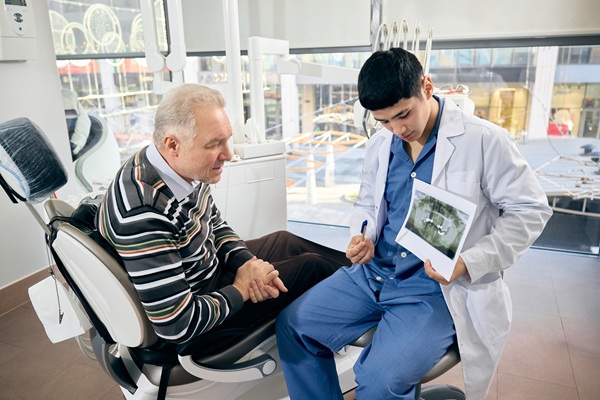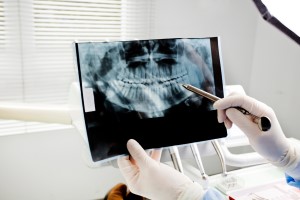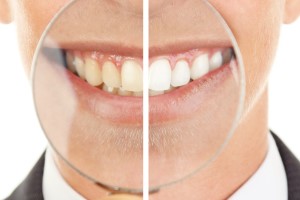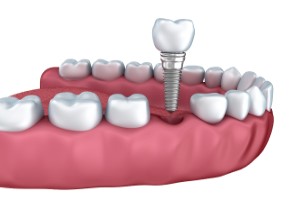Why Routine Dentist Visits Are Good for You

Do dentists get a bad rap?
Dentists are so very misunderstood. And many people are so leery of going to the dentist, they wait until the pain from untreated dental issues becomes more terrifying than their phobia of the dentist. The irony is that if you keep your routine dental appointments and maintain good oral habits, you are unlikely to ever need a scary dental procedure performed.
Still need more convincing?
Find out what happens during a routine checkup and discover the benefits of having regular dental checkups.
How dentists perform routine checkups
- First, the dentist will examine the head, neck, lower jaw joints and the lymph nodes for swelling.
- Next, the dentist will check for gum disease and evaluate the overall health of the patient's gums. The dentist will go on to examine the other soft tissues in the mouth.
- The dentist will check the teeth for signs of injury and decay. They will also check the patient's dental restorations to see if they are in good shape. If the patient has dentures or orthodontic appliances, the dentist will take a close look at them and make sure they still fit properly.
- Finally, the dentist will check for signs of malocclusion or teeth grinding.
While performing the exam, the dentist will be on the lookout for signs that may indicate the patient has diabetes, poor nutrition or oral cancer. The benefits of having such a thorough examination include:
1. Prevention or early detection of plaque, tartar and cavities
A second set of eyes is the best way of knowing if a person is cleaning their mouth properly. If the patient misses a spot, the dentist will let them know. The plaque that forms in the neglected spot will be removed and the dentist will give the patient helpful tips for cleaning those hard to reach places.
A person who gets regular checkups rarely has cavities. But if a cavity does develop, it will be detected in its early stages.
2. Early detection saves time, money and prevents intensive dental procedures
A dental problem that is discovered early is easy to fix. It does not require drastic treatments like tooth extractions, root canals or gum surgery. Mild gum disease only requires cleaning and oral medication. If detected early, a damaged tooth only requires minimal dental restoration.
Treatment of the early stages of most dental issues is generally cheap, quick and painless.
3. Regular checkups help to identify and correct bad oral habits
Bad habits like smoking or drinking are widely known to cause dental problems. But many people are unaware that seemingly harmless habits like clenching the jaw, chewing ice chips and brushing the teeth too hard are just as bad for teeth.
Routine checkups allow the dentist to detect a patient's bad habits. The dentist can then guide the patient toward better behavior. In the long term, the patient's change in behavior will prevent a host of oral issues and the bills that come with them.
4. Early detection of health issues
Lymph node disorders, poor nutrition, diabetes, cancer of the mouth and blood disorders can be detected during a dental exam. Early detection of such serious problems means a good prognosis. Conditions that are caught early are easier and cheaper to treat, and the chances of a full recovery are much higher.
When was your last dental appointment?
If you want to make sure that your dentist never comes at you with a drill, all you have to do is keep in touch. Then your dentist visits will be quick and pain-free. Talk to one of our dental health professionals today.
Go to https://jacksonheightdental.com to find a good dentist near you or call 82nd St. Dental at (718) 476-5555.
Recent Posts
Curious about what happens during a teeth cleaning at a general dentistry office? Read on to learn more about what to expect during a professional dental cleaning. You may be aware that the dentist cleans your teeth and examines your mouth for signs of oral issues, but you might not know the exact steps involved.…
Dental cleanings are one of the most important parts of maintaining good oral health, but few people know how often they should schedule them. It's important to know this information so that you can keep your smile healthy and strong well into the future.Most dentists will recommend going in for a dental cleaning every six…
Wondering if a dental cleaning helps prevent gum disease? Preventive dentistry is essential to having a healthy mouth because it helps patients avoid cavities, enamel wear and gum disease. This is why routine dental cleanings are so essential to a dental patient's overall oral health.Signing up for a dental cleaning on a regular basis is…
A dental check-up and cleaning is an essential part of taking care of your teeth. It can help prevent the onset of many oral diseases while also helping to improve your smile's appearance. After all, you only get one set of natural adult teeth, so it's up to you to properly take care of them.…






